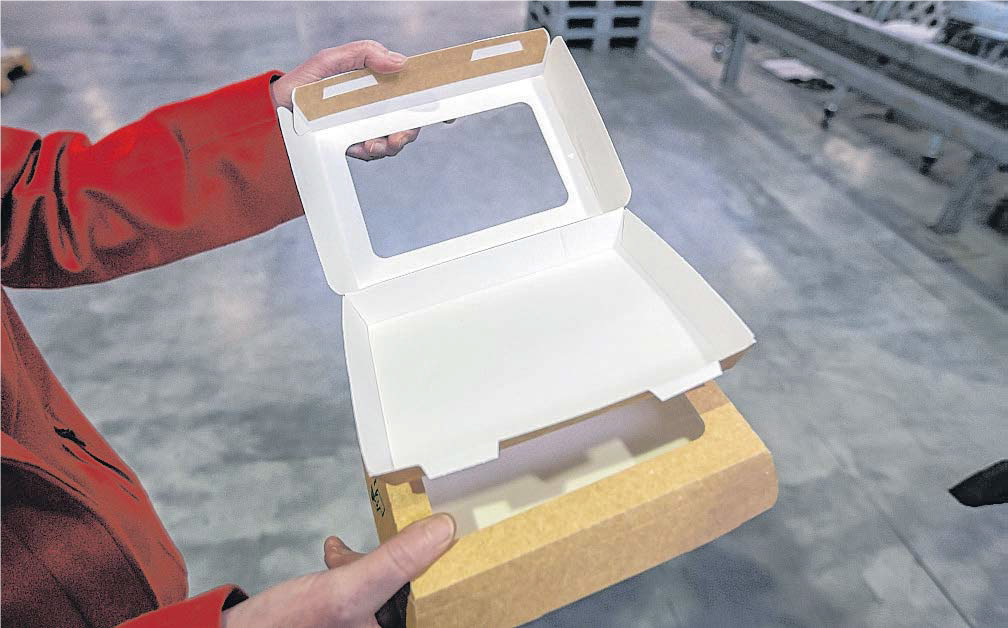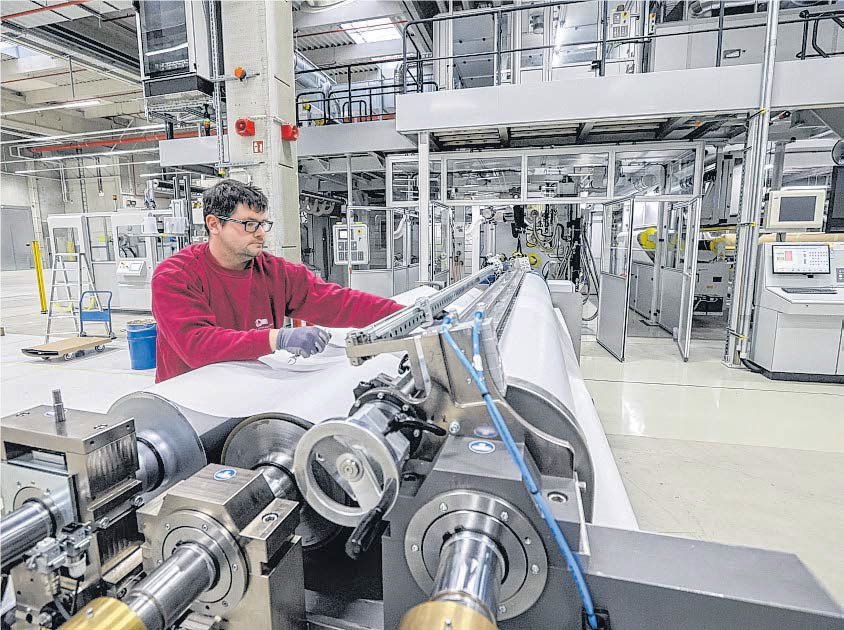From sushi to salad: corrugated board offers sustainable packaging. Lichtenau is setting new standards for the packaging industry. A local family business has set itself the challenge of replacing plastic with innovative packaging.
LICHTENAU - Sushi, tarts, pasta, fruit, vegetables and various salads to go: food manufacturers are focusing more heavily on sustainable and fully recyclable packaging made of solid or corrugated board. Plastic packaging is out. Both trays and packaging lids are produced from corrugated board, thus using renewable raw materials. Even packaging with viewing windows can be disposed of in blue waste paper bins, says Andreas Bader, Managing Director of Wellpappe Auerswalde in Lichtenau.
And he would know, given that producing packaging for direct contact with foodstuffs is one of the company’s main areas of expertise. Wellpappe Auerswalde is a leading manufacturer of such packaging, including for baked goods such as meat loaf. While the man in his mid-60s doesn’t give away too many personal details, he and his brother are currently the fifth generation to manage the company, which is part of the Schiettinger Group, and the handover to the next generation is already underway.
Ever since Wellpappe was established in the 19th century, demand has increased drastically. The Schiettinger Group, of which Wellpappe has been part since 1991, was founded in 1885 by Carl Friedrich Schiettinger in Göppingen in Baden-Württemberg as a plain cardboard packaging factory with a printing press and lithography service. The former cardboard factory in Brand (Upper Palatinate) was taken over in 1914. The first offset printing press was put into operation in Göppingen in 1935. The production of corrugated board started in Brand in 1960. The corrugated cardboard plant Wellpappe Auerswalde was founded in Lichtenau in 1991. The Display product group, which produces sales displays, was added in 2001. The production and office space in Brand was expanded in 2019.
“The complete recyclability allows paper to be reused.” Andreas Bader, Managing Director of Wellpappe
Since 2020, construction cranes have been back in action in Lichtenau. The building works at the former Lichtenau Display site, now referred to as factory 2 for Wellpappe Auerswalde KG, are almost complete. According to Andreas Bader, building work is planned for mid-2024 to the east of the Amtmannstrasse road.
The plan is to build a large bridge over the Amtmannstrasse that connects the two factories. The finished packaging will then be transported to the new warehouse with over 40,000 spaces. Based on figures from the management, a high two-digit million investment has been made in total. Bader doesn’t give a precise figure but it’s between 70 and 100 million euros. The new coating plant alone cost almost 15 million euros. The company is equipped for the future, says Bader.
This is because the larger production site now enables production processes to be automated, internal logistics to be streamlined and specialities such as coated paper to be tailored to customers’ needs, he explains. New market segments outside of traditional packaging can now also be tapped into. In particular, the coating of paper and film for direct contact with foodstuffs with good, recyclable solutions and the resulting packaging for the food industry could make a significant contribution to replacing plastic.
“The complete recyclability of our solutions enables paper to be widely reused and so helps to achieve closed-loop recycling,” highlights Bader, adding: The demand for products from Auerswalde has continued to increase following discussions about sustainability, conservation of resources and replacing plastic. He doesn’t hide the fact that the packaging industry has had to battle a decline in sales due to the fall in consumption. “Despite this, we haven’t had to introduce short-time working yet,” adds Bader. Around 300 staff are employed at the Lichtenau site where various apprenticeships are offered, primarily in the technical sector.

Packaging with a transparent window made of corrugated cardboard. Sushi, tartlets, pasta, fruit, vegetables and various takeaway salads are packaged in this way.

Employee Steve Goldammer converts the new coating machine. This is where packaging for direct food contact is produced.
